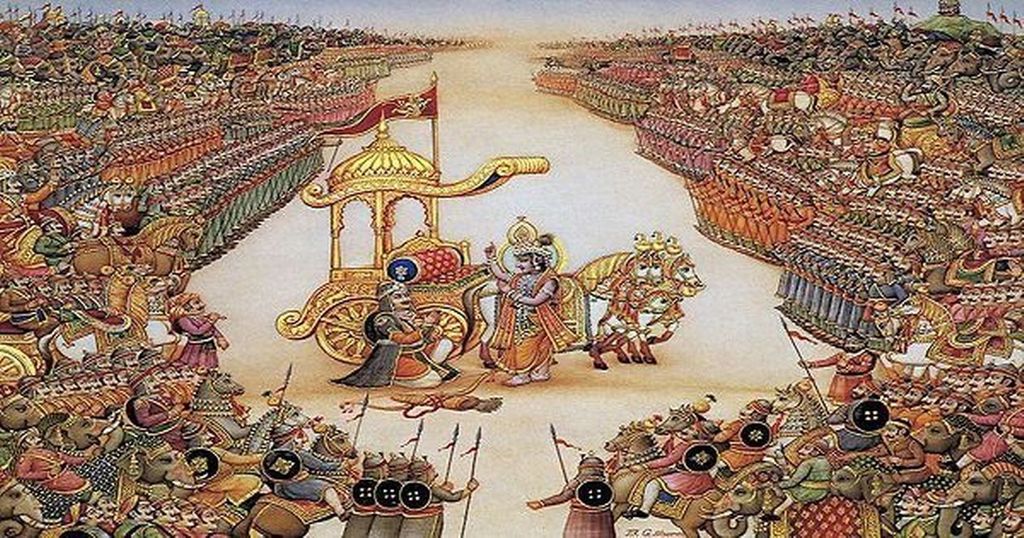Good Vs Evil In Indian Epics
Jun 25, 2019 • 271 views
The fight between good and evil has garnered media attention for centuries. Whether in ancient texts or modern day TV series, we see good triumphs over evil. Now for the sake of simplifying, it can be said that the Indian epics are a big inspiration for all fights based on morals in Indian television. Good triumphs evil: we see this in Rama’s final battle and the battle of Kurushetra.

The Pandavas win, not because, the kauravas are evil or they themselves are flawless. The Pandavas win, because they represent Dharma. As Krishna has said if Kauravas had won, it would have been win of Adharma. Dharma is not just being good. Dharma represent the order of the universe itself. Thus, those who go against Dharma, go against the nature of the universe. Therefore it is safe to say those who perform Adharma are rooting for the evil. The mistreatment of Pandavas by their cousins, led to the demise of Kauravas. Duroryodhan was selfish and scheming. The great sin done by humiliating Draupadi in front of the full court makes him a shoe-in for the role of the villain. As Krishna had proclaimed- the war was inevitable. To not act goes against the dharma of individuals. To witness a scene without action is committing Adharma.
“Over-attachment for one’s close relatives is simply born of ignorance. Every creature in the world is born alone and dies alone. He experiences the results of his own good and evil deeds and in the end leaves the present body to accept another. The belief that one person is the relation of another is nothing more than illusion.” -Krishna Dharma, Mahabharat
The Ramayana tells the story of Ram as he meets the other. His destiny leads him to a war with Ravan the king of Lanka to rescue Sita. Rama is perfect among humans, godlike in both appearance and mannerism. In later writings he attends the status of god himself. Thus, it is needless to say he represents the good in man. He follows the code of Maryadha Purushotam, the best among men. Ravan has earned the title of the demon king both through his status of king of the rakshas and the many crimes he committed. Again he fills the role of a villain. Though Ravan was a principled man who believed in god himself, he is not spared as he went against good. Good remains undefeated. It perseveres through harsh condition. Even evil bows itself to good in loss, as witnessed by the regret and apology of Ravan.
It is interesting to note that though both the Pandavas and Ram won the wars they did not receive much happiness in their personal life. Ashathama killed all of Pandavas’ sons. They were not happy in their win. Yudhistir said,” Those who lose war are the brave, the cowards are those who win and live on.”Rama on the other hand has to exile Sita and abandon his sons for maintaining peace in his country. Though his country flourishes his personal life suffers. The aftermath of war are devastating and horrifying.
This brings us to the conclusion that being Good does not give us a faultless path of happiness. Rather being good results in a road of life fraught with complications and sorrows. But this is the reason that it is imperative to stand for the good. Though the fights of Good and Evil has changed with times, Evil still resides. Evil stays in our heart everyday but we must overcome it through our actions. our actions are the footmarks that we leave in earth. The actions of a person shows whether he morally sides with the good or the evil.
